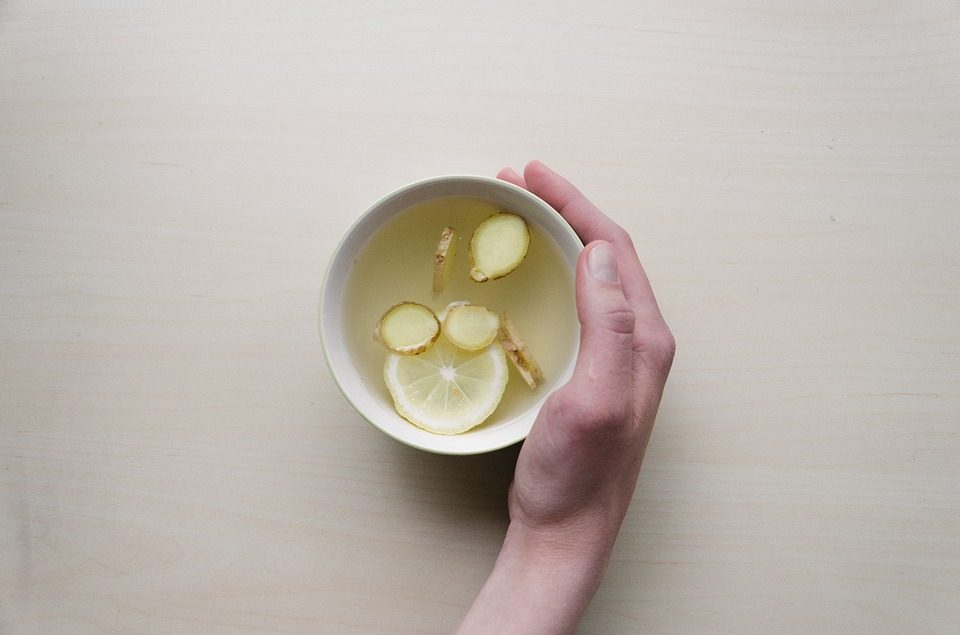
5 Great Anti-Inflammatory Herbs
Inflammation is important. It is a phenomenon that helps the body repair damaged tissues. It helps the body combat foreign invaders like bacteria and fungi. Without inflammation, we wouldn’t last long.
But inflammation can also cause serious problems. Chronic inflammation can lead to some really serious diseases over time. This includes certain types of cancer and arthritis. Symptoms of chronic inflammation include fatigue, mouth sores, chest pain, abdominal pain, fever, rash, and joint pain.
Perhaps you’re experiencing inflammation from a gardening injury. Maybe you’re reeling from a Game of Thrones episode. Maybe you want to prevent chronic inflammation over the span of your life. Whatever the case, finding ways to cool down your body’s immune response is an important part of staying healthy. Drinking plenty of water. Eliminate unnecessary stressors. Eat fruits and vegetables. These are all great places to start. Additionally, there are herbs you can incorporate into your daily routine that will help out as well. Below are 5 great anti-inflammatory herbs to know:

Turmeric
As it turns out, turmeric (the spice that gives many curries their vibrant color) is a magical plant. Tumeric contains the compound curcumin which is important because it is a chemical compound with extremely high anti-inflammatory and antioxidant properties.
Unfortunately, curcumin can be tricky for the body to absorb. If taking a turmeric supplement, try swallowing a couple of peppercorns, too. Peppercorn can assist the body in absorbing the turmeric. It’s also a cool example of how certain spices that taste great together cause also work in tandem for health benefits.
Consider making a golden milk tea, especially if you’re fighting a cold. Add one cup of coconut milk, ½ teaspoon of turmeric, a pinch of pepper, and a bit of grated ginger to a small pot over the stove. Heat and stir the mixture for 15 minutes or so, but don’t let it come to a boil. If you’d like a bit of sweetness, add some honey after heating. Viola! A delicious tea featuring one of the more powerful anti-inflammatory herbs. It tastes great no matter the season.

Ginger
Ginger is packed with powerful compounds and nutrients that can help with a wide variety of health issues and positively affect both your body and your brain. A flowering plant native to China, ginger is closely related to turmeric and has been used in traditional medicine for thousands of years. Whether it is fresh, dried, powdered, or juiced, ginger will probably help your body out, whatever the given ailment.
Responsible for much of ginger’s medicinal properties is gingerol, a bioactive compound found in the root that makes ginger such a strong antioxidant and anti-inflammatory herb. In a controlled study of 247 people experiencing osteoporosis of the knee, the people who took ginger extract experienced less pain and needed less pain medication. There are also studies that showed when ginger was applied as a topical ointment, it helped to reduce pain and stiffness in patients.
Green Tea
Green tea is made from the Camellia sinenses plant. When it comes to the inflammatory responses of the body to injury or infection, scientific studies have shown this plant, and the green tea it is packaged into, to be an effective anti-inflammatory herb when ingested.
There are several varieties of green tea in existence. The tea leaves vary greatly depending on where they grow, their variety, and season in which the plant is harvested.
One of the most poignant compounds in green tea is Epigallocatechin Gallate or EGCG. It inhibits cholesterol and inflammatory markers to promote cardiovascular health and fight metabolic diseases.

Rosemary
In addition to rosemary being one of the very best smelling plants on planet earth, it is also an anti-inflammatory herb. A member of the mint family, rosemary is native to the Mediterranean region. It is a perennial plant that is also a good source of iron and calcium and vitamin B-6.
Its use is ancient. Rosemary will be effective in teas, washes, pastes, and as a powdered extract. As an anti-inflammatory herb, rosemary can alleviate muscle pain, improve your memory and boost your health and circulation. Rosemary also tastes great when cooked into a potato dish.

Image by Dick Culbert
Cat’s Claw
A tropical vine found in the rainforests of Central and South America, cat’s claw’s thorns resemble that of a cat’s – hence the name. The earliest examples we have of the use of Cat’s Claw dates back to the Inca civilization. For now, there’s no conclusive scientific evidence to support the health claims. Still, there is plenty of folk knowledge and remedies based on the plant’s anti-inflammatory powers. Historically (and currently) homeopathic and traditional healing practitioners use cat’s claw to combat inflammation, viral infections, arthritis, and hemorrhoids to name a few.
Have you used herbs to combat inflammation? What was your experience in doing so? Feel free to comment below.













